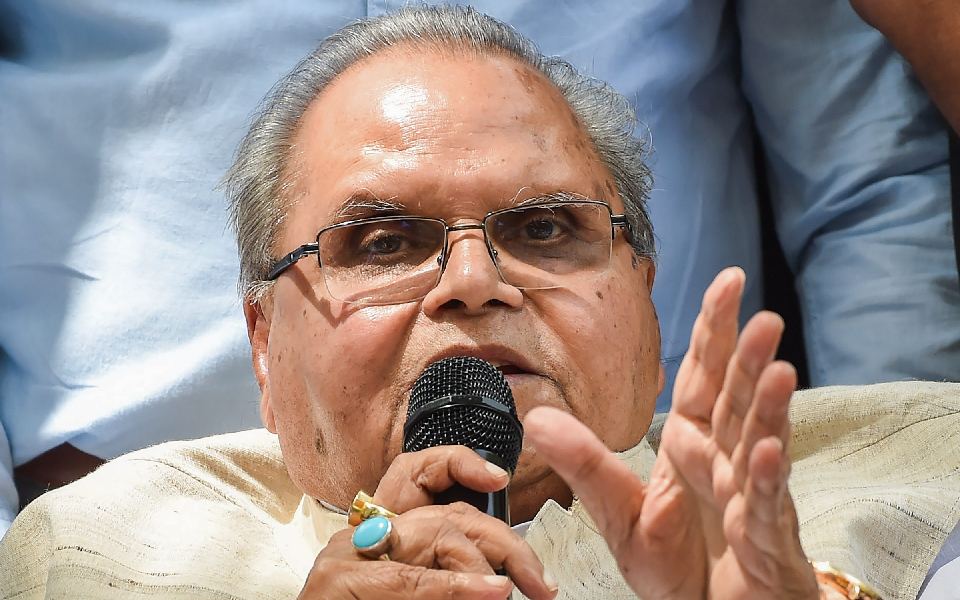An agreement between the US and India concerning the development of semiconductors, AI, and telecommunications has caused quite a stir in Beijing. India has had the opportunity to gain from a reshuffling of the global supply chain, but its arrangement with Washington could be hindered by bureaucratic issues
Analysts suggest the recent US-India alliance - which focuses on semiconductors, AI, and telecommunications - could hasten the restructuring of global supply chains, to the detriment of China's influence.
Last Tuesday, the information revealed about the US-India Initiative on Critical and Emerging Technologies (iCET) included plans to collaborate on quantum computing and defence. The agreement between the US and India is regarded as an effort to constrain China's part in worldwide supply chains, even though Beijing is not specifically mentioned in the document.
Chinese government officials have been vocal in their worries about the US's attempts to disconnect economically and technologically from the country. The response to this initiative has been strong in Beijing.
In the past week, the People's Daily has published multiple editorials by Zhong Sheng, a pseudonym that stands for the view of the Chinese Communist Party's media arm. These pieces have accused the US of influencing allies to form coalitions in order to impede China's progress. India was not explicitly mentioned in these articles
Washington appears to be open to deepening economic and technological ties with India, which has purportedly become the most populous nation on Earth, as opposed to its wariness of China.
In an effort to protect its national security, the US has taken steps to block China's semiconductor progress. Simultaneously, Washington has promised to back India's "development of a semiconductor design, manufacturing, and fabrication ecosystem," as well as a "skilled workforce," in order to give the South Asian country a more substantial role in the world chip market - a move analysts surmise could potentially diminish China's power.
In an opinion piece last Wednesday, Liu Zongyi, a researcher at the Shanghai Institutes for International Studies, suggested that the US should involve India in their "friend-shoring" initiative, thus making the ally a "supply chain alternative to China". This was reported by the Chinese nationalist tabloid, Global Times.
India is profiting immensely as corporations change their supply chain operations, relocating production from China due to strict pandemic laws and the growing conflict between the US and China.
Goldman Sachs analysts recently analyzed India's future and found that it might be an appealing place to invest over the long-term, given the current geopolitical issues in other parts of the world. They referred to it as a potentially attractive consumer market.
By 2027, analysts at the Taiwanese research firm DigiTimes predict that India will have a share in the production of Apple's iPhones ranging between 45 to 50 per cent, which is a significant rise from the less than 10 per cent it had in the past year
Faisal Kawoosa, chief analyst at New Delhi-based market consultancy Techarc, declared that the US and India would both benefit from the [iCET]. The US would find a dependable partner to help with manufacturing and supply chain, while India would gain an ally to provide the needed resources.
At present, the collaboration between the United States and India is largely just theoretical.
Michael Kugelman, deputy director of Asia Programme and senior associate for South Asia at the Wilson Centre, a non-partisan think tank located in Washington, noted that the potential benefits at present are more of a concept than tangible
iCET has the potential to provide India with the necessary products and know-how to grow its tech sector, including its semiconductor industry; however, the bureaucracies in both countries can be quite restrictive.

Girish Linganna
Defence and Aerospace Analyst
Let the Truth be known. If you read VB and like VB, please be a VB Supporter and Help us deliver the Truth to one and all.
Udaipur (Rajasthan), Sep 21: The search for a leopard that has allegedly killed three people in Gogunda in Rajasthan's Udaipur district recently has intensified with an Army team being roped in for the purpose.
However, the animal is yet to be traced.
A 16-year-old girl was killed by the leopard on Wednesday, a man aged 50 years was mauled to death by the big cat on Thursday and a 40-year-old woman was killed supposedly by the same animal on Friday.
The incidents occurred at different locations in Gogunda, prompting the forest authorities to place five cages in order to capture the leopard that is believed to have taken shelter in the hilly area nearby.
The presence of the leopard has caused fear among villagers.
A rescue team from the forest department, along with villagers, has reached the hills to trace the animal.
Station House Officer (SHO) of the Gogunda police station Shaitan Singh said a team from the Indian Army has also been called to assist in the search operation, using drone cameras to monitor the entire area.
Teams from Rajsamand, Udaipur and Jodhpur are actively engaged in the search operation.
Divisional Forest Officer (DFO) Ajay Chittora, Sub-Divisional Magistrate (SDM) Naresh Soni and others were also present during the search operation.





